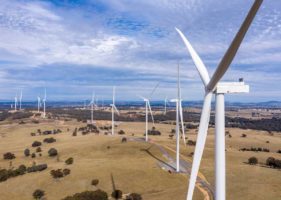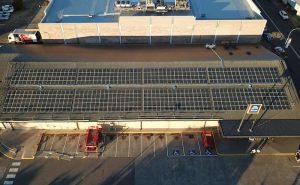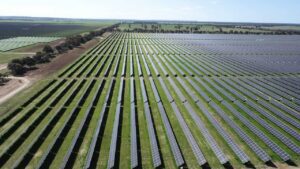The Carbon Market Institute (CMI) has called on the Clean Energy Regulator to postpone announced changes to the Emissions Reduction Fund that have caused a dramatic collapse in Australian carbon offset prices.
As RenewEconomy has documented, the Clean Energy Regulator has announced it would facilitate a large number of carbon abatement projects to effectively be freed from their government contracts under the Emissions Reduction Fund.
The change would allow projects to sell the Australian Carbon Credit Units (ACCUs) they generate into the open market, where they have recently attracted much higher prices from voluntary buyers, mostly corporates looking for ways to offset their emissions.
However, the surprise announcement sent the price of ACCUs plunging, dropping 40 per cent in just a few days with around 113 million ACCUs now freed form their contracts, raising concerns about whether new emissions reduction projects could still be financially viable.
The CMI said the announcement was made without adequate consultation with the industry, and called on federal energy and emissions reduction minister Angus Taylor to delay the change and commit to talking to the landholders who host the projects and other stakeholders blindsided by the change.
“CMI has written to the Minister for Energy and Emissions Reduction highlighting operational issues with the proposal and requesting the postponement till 1 July 2022 for the ensuing six month exit window,” CEO John Connor said in a statement
“CMI’s members have highlighted concerns about carbon project developers’ ability to appropriately consult with landholders under Australian Financial Service Licence and Carbon Industry Code of Conduct requirements.”
Under the Emissions Reduction Fund, the federal government held contracts for the purchase of around 113 million ACCUs, at an average price of around $12.50 each. Immediately prior to the change, ACCU prices in the open market were around $47 each.
But by agreeing to free up carbon traders from these contracts, prices dived and have now settled at around $31 each.
In the immediate wake of the announced change, the Clean Energy Regulator said it would undertake consultation with a view to setting an “expectation” that any carbon traders exiting their contracts would share the benefits with the hosts of the offset projects.
“Consultation is just beginning on benefit sharing guidelines that the Clean Energy Regulator will be applying to exit arrangements which may mean a very limited time to engage appropriately with landholders and stakeholders including native title interests and banks where relevant.”
The regulator indicated that the changes would take immediate effect from the time of the announcement on 4 March 2022. But the Carbon Market Institute wants this pushed back until at least July.
Several carbon market participants have told RenewEconomy they were surprised by the changes and expressed disappointment that the announcement of such a fundamental change to Australia’s fledgling carbon market was released just after midnight on a Friday morning.
While the announcement was welcomed by some of the carbon market’s largest participants, which can now sell their carbon credits into the more profitable open market, a larger number of smaller players – including those that only ever operated in the open market – have seen their potential earnings massively dented.
Posting on LinkedIn, Regen Farmers Mutual’s Andrew Ward described the changes as an “own goal” with the sudden change in the government’s policy stance potentially spooking open market buyers.
“The breaking of the Government’s past purchase agreements (that paid a lower price) will be welcomed by the counter-parties today because these can be resold at a higher price,” Ward writes.
“But the long term impacts from the erosion of trust when the government creates rules and then rips them up, is yet to play out, but it has left a lot of head scratching.”
“It’s not a move that the industry was consulted on and it has shocked the confidence of what few corporate buyers were in the market for ACCUs. Other instruments and other jurisdictions look more stable,” Ward said.










